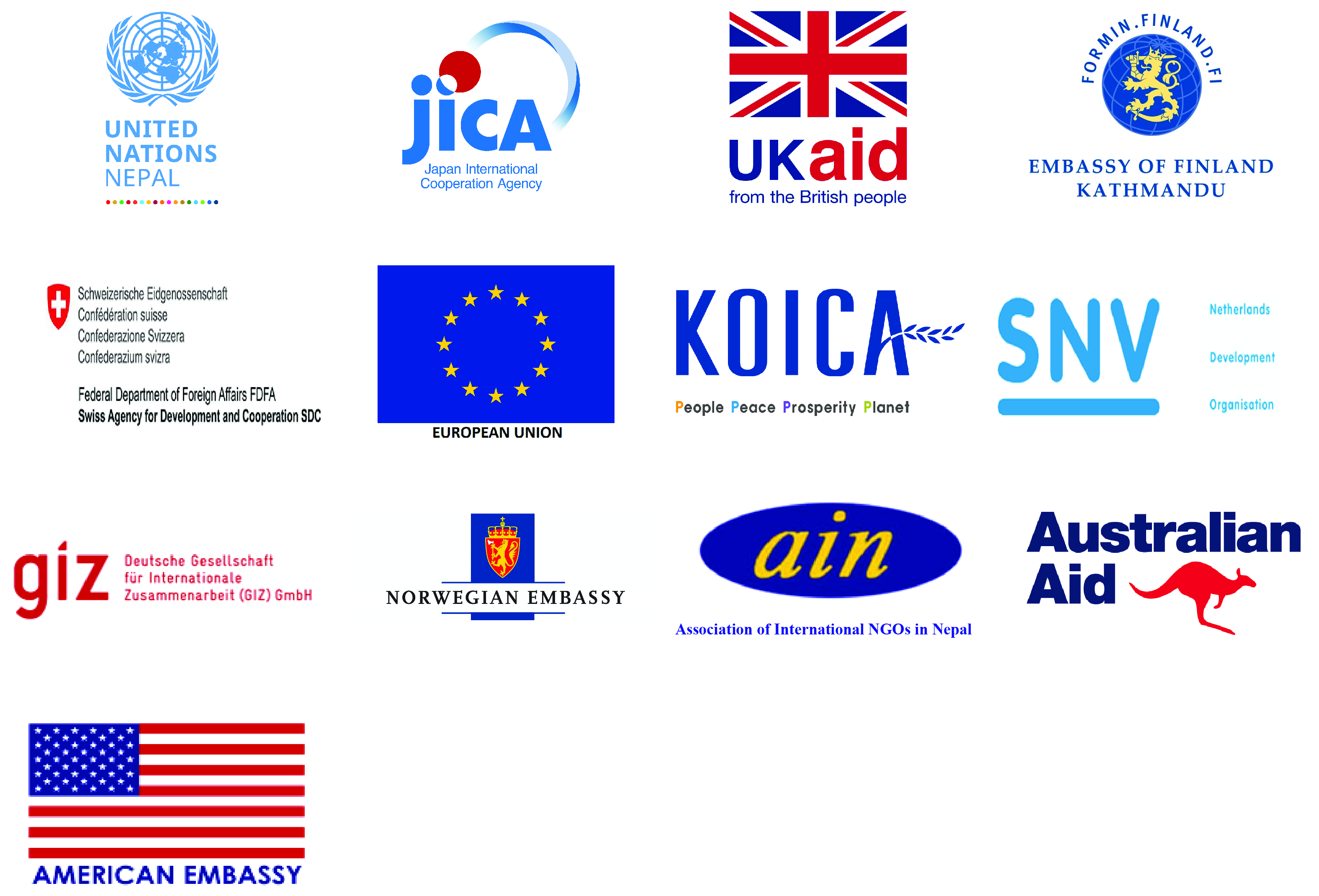
Introduction
The Basic Operating Guidelines were introduced in Nepal in 2003, in the context of the internal armed conflict between the State and the then Communist Party of Nepal (Maoist), and were revised with minor changes to the wording in 2007. The armed conflict was having a negative effect on operational space for development organisations, and the BOGs were developed as a way of keeping operational space open and ensuring the security of staff. They allowed development work to continue by clearly explaining the operating principles to all actors concerned in a clear and comprehensible way. There were initially ten signatories to the BOGs – the European Commission, Danish International Development Assistance (Danida), Swiss Agency for Development and Cooperation (SDC), Canadian International Development Agency (CIDA), the Norwegian Embassy, the Department for International Development of the United Kingdom (DFID), Japan International Cooperation Agency (JICA), Deutsche Gesellschaft für Internationale Zusammenarbeit (GIZ), the Embassy of Finland and Netherlands Development Organisation (SNV). The United Nations in Nepal initially had its own Basic Operating Guidelines, which were drafted in 2003. Likewise, the Association of International NGOs in Nepal (AIN) had a Code of Conduct and some of the other donors had a set of basic operating guidelines, which were drafted in 2004. However, since 2007, one unified set of BOGs exists. The United Nations, Association of International NGOs in Nepal and Australian Government Overseas Aid Program (AusAID) became signatories in 2009, bringing the total number of signatories to 13.
Although the armed conflict has now been concluded, the BOGs and their fundamental principles of impartiality, transparency, accountability and inclusion remain as relevant as ever. The context in which the BOGs signatories are working is becoming increasingly complex. It is important to remember that the BOGs express principles that are internationally accepted best practices that should be respected in war, peace or periods of transition.
For more information about the BOGs, you are welcome to download the training manual found on this website, or to contact the BOGs Secretariat at [email protected]
Definition
The Basic Operating Guidelines (BOGs) relate to the behaviour and standards that we, the BOGs signatories, expect from ourselves as development organisations, our implementing partners and other actors in the communities in which we and our implementing partners work. The BOGs are considered a statement of principles. They are intended to offer BOGs signatories, our staff and our implementing partners’ protection from any challenges to operational space for development. They also make us and our implementing partners responsible for working in a way that is transparent, accountable, impartial and inclusive (the four fundamental principles). The signatories to the BOGs often think only of the protection that the guidelines offer, but it is important to bear in mind the responsibility that the signatories have to implement and respect the guidelines. The BOGs are designed to remind development organisations that our aim is to improve the lives of the people of Nepal, while working in coordination with, and respecting the priorities of, the Government of Nepal. The guidelines are one of the main tools that the BOGs signatories, including the United Nations, donors, and national and international non-governmental organisations (NGOs/INGOs), have for protecting operational space for development (i.e., the environment in which we work). The BOGs also remind us why we are working in Nepal, how we should work and what we are trying to achieve. The BOGs are based on established and accepted international humanitarian principles and international legal standards. The principles expressed in the BOGs are not exclusively applicable to Nepal – they are considered by the BOGs Group members to be best practice wherever they work.
Monitoring
The operating environment for development actors in Nepal can be extremely complex and it is important that members of the BOGs group work to understand the challenges and opportunities which they could face. To assist in this, the BOGS Secretariat collates information on operational space issues and encourages members of the BOGs Group to share these kinds of incidents with the BOGs Secretariat. The Secretariat, with the assistance of the Information Management Unit at the UNRCHCO, produces maps and analysis of incidents and trends to better inform the BOGS Group’s responses to operational space incidents and trends.
Analysis of these trends is presented at BOGs Group meetings or the BOGs Secretariat can be contacted to provide briefings.
BOGs Meeting
The BOGs Group, which represents almost all the major donors operating in Nepal as well as the Association of International NGOs in Nepal, has, since 2003, consistently played an active role in monitoring and advocacy efforts on operational space. The group was established in October 2003 in order to provide a forum to establish common positions on operational space issues, share experiences amongst BOGs members and disseminate examples of best practice. Meetings are held at the Swiss Embassy under the Co-Chairmanship of the United Nations Resident Coordinator and the Swiss Ambassador and are open to all members of the BOGs Group.
